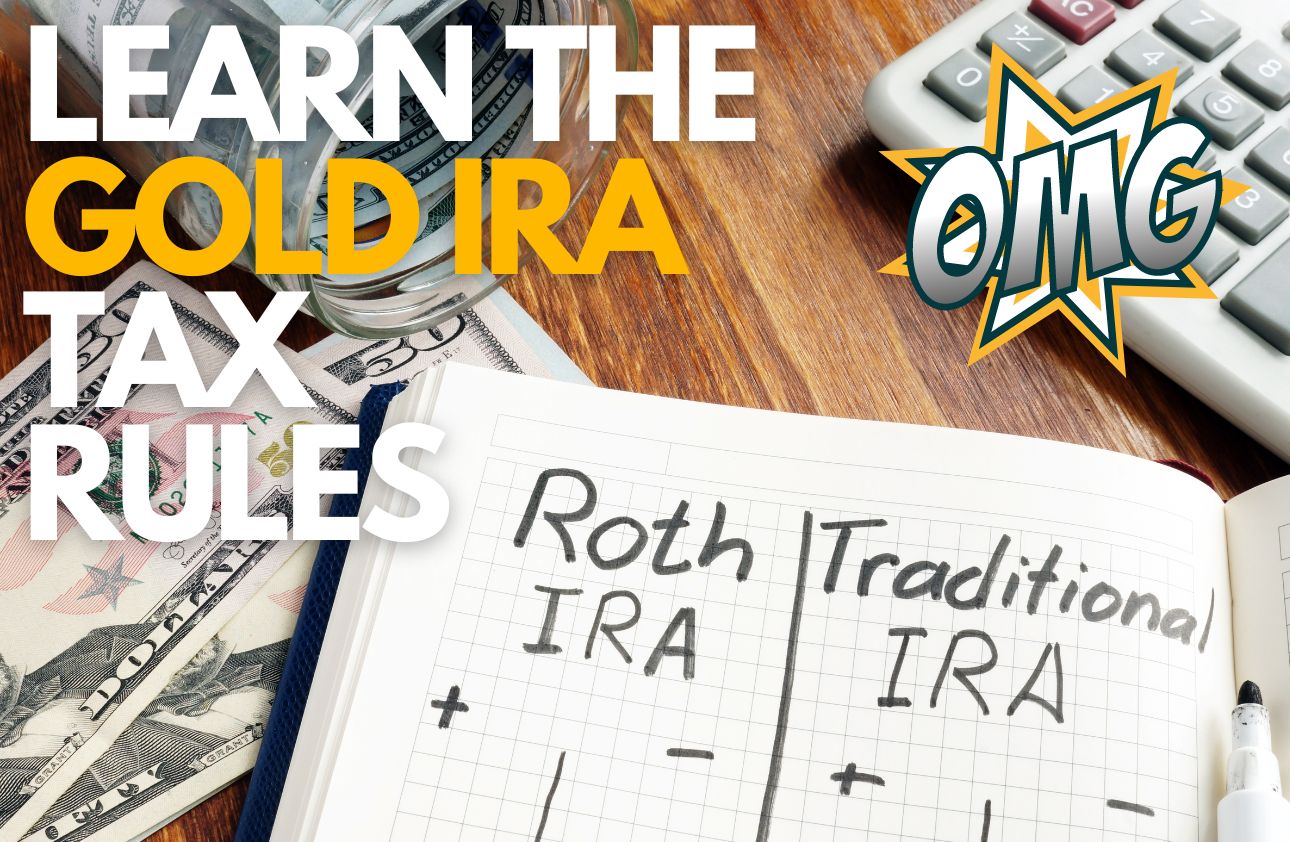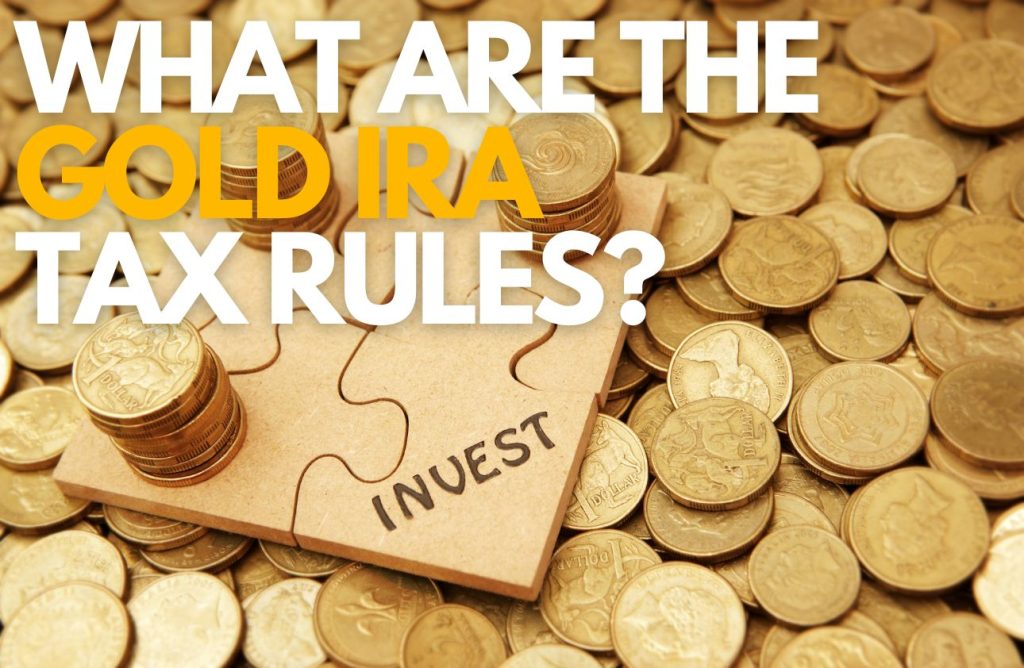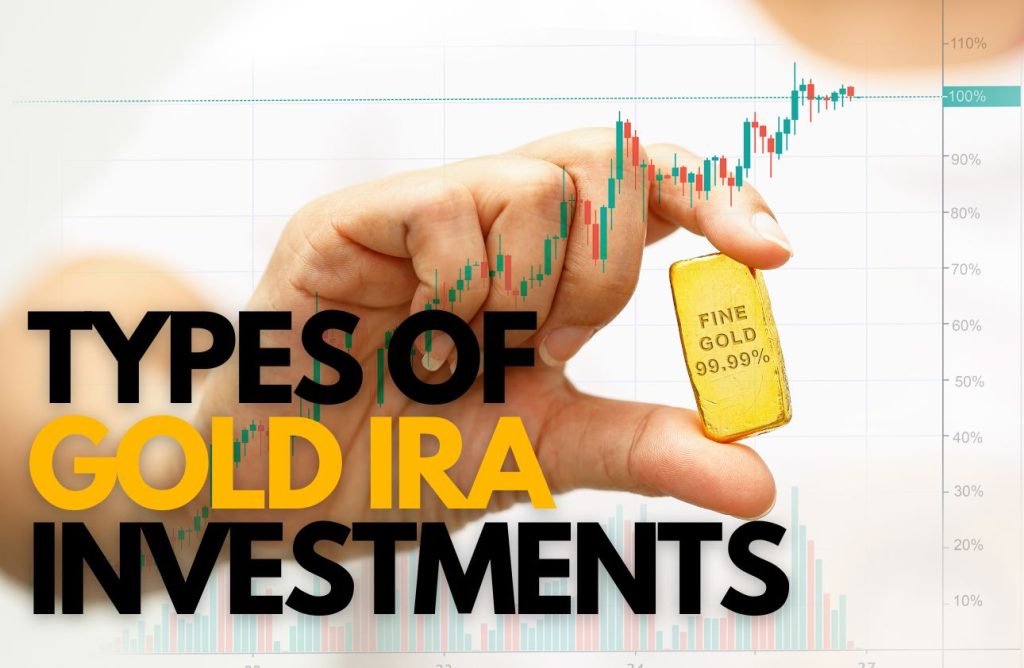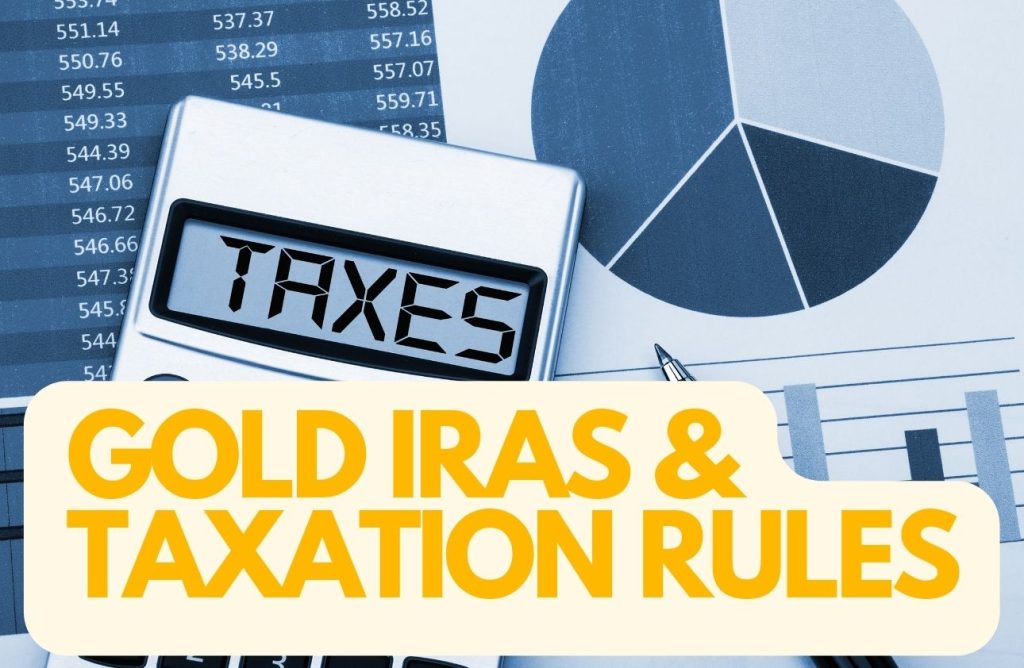Don’t Get Penalized: Learn the Gold IRA Tax Rules

With the stock market fluctuations of recent years, many people are looking for alternative investments to protect their retirement savings.
One popular option is a gold IRA. But before you invest, it’s important to understand the gold IRA tax rules. This way, you can avoid any penalties that might be associated with improper investing.
What is a Gold IRA?
A gold IRA is a retirement account that allows you to invest in physical gold and other precious metals.
This type of account has become increasingly popular in recent years as a way to protect retirement savings from the volatility of the stock market.
One of the benefits of a gold IRA is that there are no taxes on gains until the money is withdrawn from the account.
This means that you can let your investment grow without having to worry about paying taxes on it each year. However, there are still some gold IRA tax rules that you need to be aware of.

Gold IRA Tax Rules to Know
The most important thing to know about the gold IRA tax rules is that you can only invest in certain types of gold. The IRS only allows investment in Gold, Silver, Platinum, or Palladium.
Any other type of metal will not be eligible for inclusion in your retirement account.
In addition, there are limits on how much gold you can hold in your account. The maximum amount is currently set at $10,000 worth of gold per person.
This limit may change in the future, so it’s important to stay up-to-date on the latest rules.
Finally, it’s important to remember that you will still have to pay taxes when you withdraw money from your gold IRA. The amount of tax you’ll owe will depend on how long you’ve been invested and what tax bracket you fall into when you retire.
However, by investing in a gold IRA now, you can let your money grow tax-deferred for many years.

Types Of Gold IRA Investments
There are three main types of gold IRAs: Traditional, Roth, and SEP.
Traditional gold IRAs are funded on a tax-deferred basis. This means that the investor does not pay taxes on the contributions until they withdraw the money during retirement.
The money in a Traditional IRA can be invested in a wide variety of assets, including gold.
Roth gold IRAs are funded with after-tax money. There is no immediate tax advantage, and taxes are paid at distributions during retirement. However, Roth IRAs offer different benefits than Traditional IRAs, such as tax-free withdrawals in retirement.
Roth IRAs can also be passed on to heirs without any additional taxes owed.
SEP gold IRAs are available to self-employed individuals or employees of small businesses. SEP IRAs allow for greater contributions than other types of IRAs, and the funds can be invested in gold or other assets.
Get Your FREE Gold IRA Kit!
“Start your investement the RIGHT way”

Gold IRAs & Taxation Rules
When it comes to Gold IRAs, there are a few things you should know. First, most gold investments are only available through traditional IRAs.
Secondly, they offer better returns after taxes than Roth IRAs. This is because when you cash out your investment, you’ll pay taxes on your gains shortly afterwards.
Gold IRAs also face additional fees and taxes. For example, you’ll pay a 10% fee if you withdraw early. Additionally, the rules around Gold IRAs are different from other types of IRAs.
For example, you won’t have to pay the 28% collectable tax rate. Instead, you’ll be subjected to the marginal tax rate. This rule also means you’ll pay over 28% in taxes if you fall in a high-income tax bracket.
This information is important to keep in mind when investing in a Gold IRA. The current rules and regulations around these investments can change at any time, so be sure to stay up-to-date on the latest information.

Choosing a Custodian for Gold IRA Investing
When you are looking for a custodian to hold your Gold IRA, it is important to compare the different fees they charge. Annual account fees, storage fees, and transaction fees can add up quickly.
Make sure you are aware of all the fees and custodian charges before opening an account.
Another important factor to consider is the quality of service a custodian provides. Make sure they have a good reputation and are willing to answer any questions you may have.
The best way to find a quality custodian for your Gold IRA is to ask around.
Talk to friends and family who have invested in Gold IRAs and see who they used as their custodians. You can also do a Google search for “gold ira custodians” to find a list of reputable companies.
Or you could sign up and receive a FREE Gold IRA Kit!
GRAB YOUR FREE GOLD IRA KIT TODAY!
Protect & secure your retirement savings while you can!
Which Metals Should You Buy For Gold IRA Investing?
When it comes to precious metals for a gold IRA, there are three main types that you can buy: gold, silver, and platinum.
Each one has its own unique benefits and drawbacks, so it’s important to consider what type of investment you want before making a purchase.
Gold is the most popular type of metal to invest in because it is seen as a safe investment. It is also very versatile, meaning that it can be used in a variety of different ways.
Silver is also very popular because it is cheaper than gold, making it a more affordable option for some investors. Platinum is the least popular option, but it still has some benefits that make it worth considering.
Check out the Silver BGASC marketplace to start investing today!
The Safety of Investing in Gold
When it comes to safety, there are a few things to consider. One important thing to note is that you should always consult with a professional before making any decisions about investing in gold.
Gold is a physical asset, meaning that it is something that you can hold in your hand. This makes it less vulnerable to cybercrime. However, it is still important to take precautions when storing gold.
Make sure that you have a safe place to store your gold and keep track of any purchases or sales.
Another thing to consider is the liquidity of gold. Gold can be difficult to sell quickly if you need the money urgently. This is something to keep in mind if you plan on using gold as an emergency fund.
GRAB YOUR FREE WEALTH PROTECTION KIT TODAY!
Protect & secure your retirement savings while you can!
Gold IRA Tax Rules: The Bottom Line
Now that you know all about the tax rules for gold IRAs, it’s important to understand the bottom line. When it comes to taxes, there are a few things to keep in mind:
1. You will need to report any profits you make on your gold IRA as capital gains. This means you will pay taxes on them at the appropriate rate.
2. If you sell any of your gold IRA holdings, you will need to report the proceeds as income. This means you will have to pay taxes on them at your regular tax rate.
3. You may be able to deduct some of the costs associated with maintaining your gold IRA from your taxes. This includes things like annual account fees and storage costs. Talk to your accountant or tax advisor to find out if you’re eligible for this deduction.
Overall, it’s important to be aware of the tax implications of owning gold in a retirement account.
By understanding the rules and following them properly, you can ensure that you get the most out of your investment.
Thanks for reading!

